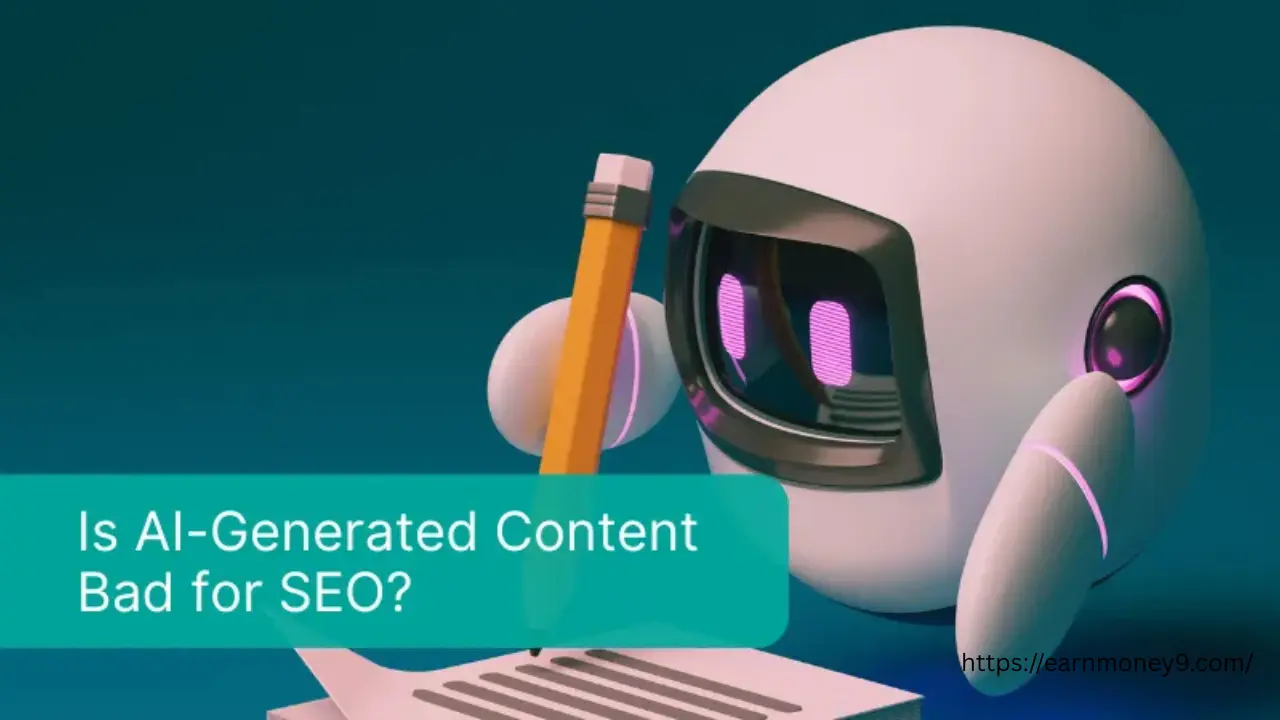Table of Contents
Why AI-generated content is still safe for SEO has become a hot topic as website owners, marketers, and creators adapt to Google’s latest algorithm updates. With AI tools like ChatGPT, Gemini, and Jasper revolutionizing content production, many worry: Does Google penalize AI content? The answer is more nuanced than a simple yes or no. In this detailed guide, we break down Google’s stance on AI-generated content, best practices for SEO, and how to future-proof your site using white-hat strategies.
Is AI-generated content safe for SEO in 2025?
Yes, AI-generated content is still safe for SEO as long as it provides value, meets Google’s quality guidelines, and demonstrates expertise, authority, and trustworthiness (E-E-A-T).
The Evolution of AI Content and Its Role in SEO
In recent years, AI-generated content has become more sophisticated, thanks to advances in natural language processing (NLP) and machine learning models like GPT. This evolution means AI can produce well-structured, coherent, and informative articles that are often indistinguishable from human writing. For SEO purposes, this opens new opportunities for website owners and marketers to scale content production efficiently while maintaining quality.
Search engines like Google focus on content relevance, value, and user satisfaction rather than how the content is created. As long as your AI-generated content serves the user’s intent, provides unique insights, and follows ethical guidelines, it remains safe and beneficial for SEO.
The Importance of Human Oversight
Although AI tools can draft content faster, human input is still crucial. AI-generated content should be edited, fact-checked, and optimized to align with brand voice and audience expectations. By combining AI efficiency with human creativity, you can create engaging and high-quality content that Google rewards. This synergy also helps eliminate generic, repetitive, or misleading information that could harm SEO.
In fact, Google’s Helpful Content System emphasizes that content should be created “by people, for people,” but it does not ban AI-assisted content. The key is ensuring that the final output truly helps readers.
Google’s Official Position on AI-Generated Content
Google has clarified in its official documentation that it focuses on content quality — not how the content is created. Whether human-written or AI-generated, what matters is:
- ✅ The content provides original, valuable insights.
- ✅ It meets search intent and user needs.
- ✅ It avoids spammy, auto-generated junk designed solely for ranking.
- ✅ It demonstrates E-E-A-T principles.
Read Google’s official blog on AI content
Why AI-Generated Content is Still Safe for SEO
Here’s why AI content remains effective when done right:
- Google prioritizes value over authorship — The origin of the content (AI or human) is irrelevant if it helps users.
- AI tools enhance efficiency — When paired with human editing, AI enables faster creation without sacrificing quality.
- AI assists in meeting SEO guidelines — Tools can help structure content properly, target keywords, and improve readability.
Best Practices for Using AI Content Safely
| Best Practice | Why It Matters |
|---|---|
| Human editing and fact-checking | Ensures accuracy and originality |
| Add unique insights | Demonstrates expertise and trust |
| Focus on user intent | Delivers relevant and satisfying results |
| Avoid keyword stuffing | Prevents ranking penalties |
How to Ensure Your AI Content Aligns with Google’s SEO Guidelines
- ✅ Include original data, case studies, or personal experience.
- ✅ Link to authoritative external sources where appropriate.
- ✅ Use proper on-page SEO (H1-H3 structure, meta tags, alt text).
- ✅ Regularly update and audit your content.
Related Post
2025 SEO Trends: What Google’s New Algorithms Reward
Common Myths About AI Content and SEO
There are several myths surrounding AI-generated content that create unnecessary fear:
- Myth 1: Google penalizes AI content automatically.
Truth: Google penalizes low-quality, spammy, or manipulative content—whether written by a human or AI. High-quality AI content that satisfies search intent is safe. - Myth 2: AI content lacks originality.
Truth: With proper prompts, AI tools can produce unique perspectives. When combined with human editing and original research, AI content can stand out. - Myth 3: AI content can’t rank.
Truth: Many top-ranking pages today include AI-assisted writing. What matters is the value the content provides to the reader.
Best Practices for Using AI-Generated Content for SEO
If you want to ensure your AI-generated content remains safe and effective for SEO, consider these best practices:
✅ Add unique value: Include case studies, expert quotes, original data, or personal experiences.
✅ Edit thoroughly: Check facts, improve flow, and enhance readability.
✅ Optimize for keywords naturally: Don’t stuff keywords; instead, focus on semantic relevance.
✅ Enhance with media: Add images, infographics, videos, or charts to improve engagement.
✅ Ensure E-E-A-T: Demonstrate Experience, Expertise, Authoritativeness, and Trustworthiness in your content.
The Future of AI Content in SEO Strategy
AI-generated content is not just a passing trend—it is becoming an integral part of modern SEO strategies. As AI tools get better at understanding context, sentiment, and audience intent, they will play an even bigger role in content marketing. Google’s algorithms are also evolving to better recognize content that truly helps users, regardless of how it was created.
Website owners who leverage AI responsibly—balancing automation with human judgment—will have a competitive edge in search rankings. The future lies in AI-human collaboration, where technology helps scale content, and human creativity ensures its authenticity and impact.
Common Pitfalls of AI-Generated Content
- ⚠️ Publishing without review — risk of inaccuracies or generic tone.
- ⚠️ Using AI solely to churn content for rankings — Google may view it as spam.
- ⚠️ Over-optimization — AI can overuse keywords if not monitored.
Conclusion: AI Content + Human Expertise = SEO Success
AI-generated content remains safe and effective for SEO when used responsibly. Google’s latest updates emphasize helpfulness, originality, and trust — all achievable by blending AI’s efficiency with human oversight. As AI technology evolves, marketers should focus on creating content that serves the user first, aligning with Google’s mission of delivering high-quality search results.
FAQs
Does Google penalize AI-generated content?
No. Google penalizes low-quality, spammy content — not AI content that provides value and meets its guidelines.
Should I disclose that content was AI-assisted?
Disclosure is not required by Google but can build audience trust, especially in sensitive niches.
How can I improve AI-generated content?
Edit thoroughly, add expert insights, and ensure the content meets user intent and SEO best practices.
Can AI content rank as well as human-written content?
Yes — if it provides equal or greater value, relevance, and quality to users.
What AI tools are best for SEO content creation?
ChatGPT, Jasper, Gemini, and SurferSEO are popular choices for creating and optimizing AI-assisted content.






